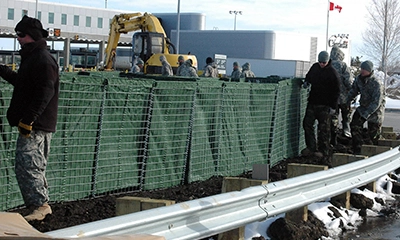
Evaluate the area where the HESCO barrier wall will be installed, considering factors such as terrain, soil conditions, and the purpose of the installation.
Determine the desired location and layout of the barriers, based on the specific requirements and objectives of the project.
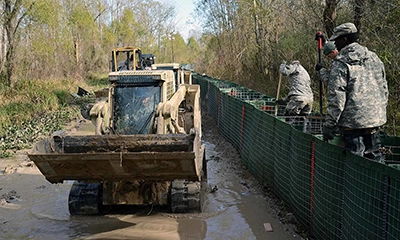
HESCO barriers: Obtain the required number of HESCO barrier units, ensuring they are the appropriate size and strength for the intended application.
Geotextile fabric: Acquire geotextile fabric to line the inside of the barriers, preventing soil erosion while allowing water to pass through.
Stakes or pins: Prepare stakes or pins to secure the barriers in place.
Shovel or machinery: The HESCO barrier installation instructions depends on the size and scale of the project, have the necessary tools available to handle the soil or fill material.
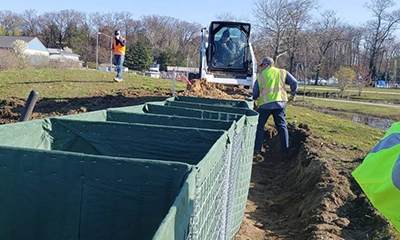
Clear the installation site of any debris, vegetation, or obstacles that could interfere with the placement and stability of the HESCO barriers.
Ensure the ground is relatively level and free of large rocks or other irregularities that could affect the integrity of the barrier structure. HESCO barrier wholesale from Andesen.
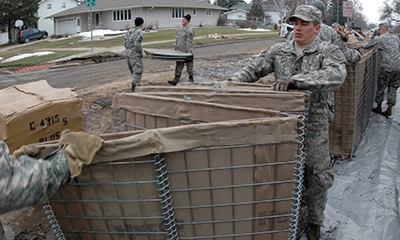
Unfold each HESCO barrier unit, ensuring it is fully extended and ready for placement.
Position the barriers in the desired configuration, aligning them to create a continuous protective wall or structure.
Ensure there is sufficient overlap between adjacent barriers to maintain stability and prevent gaps.
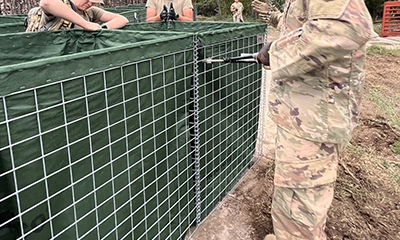
Drive stakes or pins through the outer edges of the HESCO barrier castle and into the ground, anchoring them securely.
Place stakes/pins at regular intervals along the length of the barriers and at corners or junctions to provide additional stability.
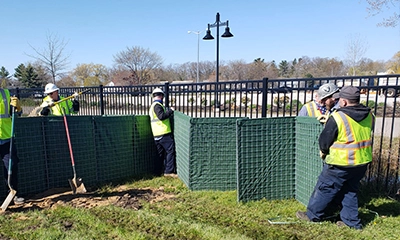
Cut pieces of geotextile fabric to fit the inside of each HESCO barrier specification.
Line the inside of the barriers with the geotextile fabric, ensuring it covers the entire surface area and overlaps the edges slightly.
Secure the geotextile fabric in place by folding it over the top edges of the barriers or using clips or fasteners provided by the manufacturer.
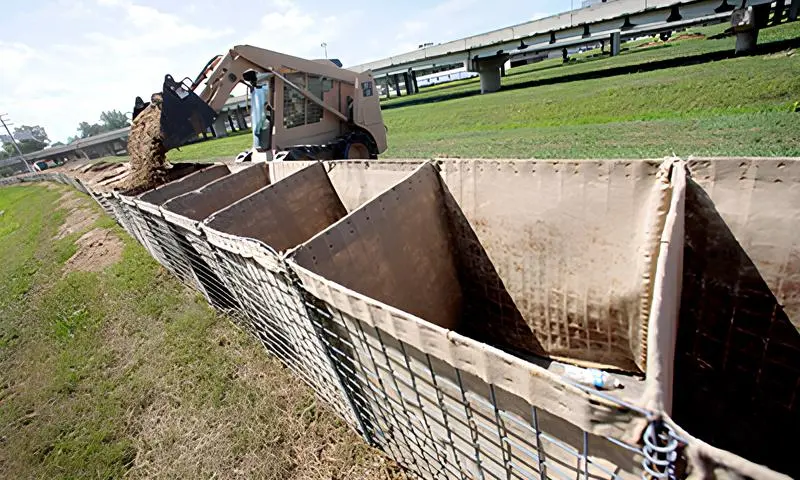
Using a shovel or machinery, fill the HESCO barriers with the appropriate fill material, such as soil, sand, gravel, or a combination thereof.
Fill the barriers evenly and compact the material periodically to ensure stability and prevent settling.
Fill the barriers to the desired height, accounting for any specific design requirements or intended purposes.
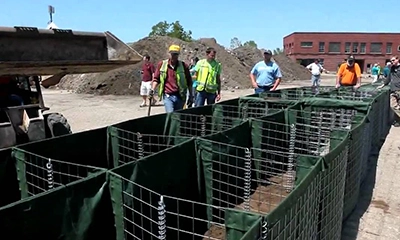
Use machinery or manual compaction tools to compact the fill material within the HESCO barrier wholesale, ensuring it is tightly packed.
Shape the top surface of the barriers to the desired profile, such as a flat or sloping surface, depending on the application.
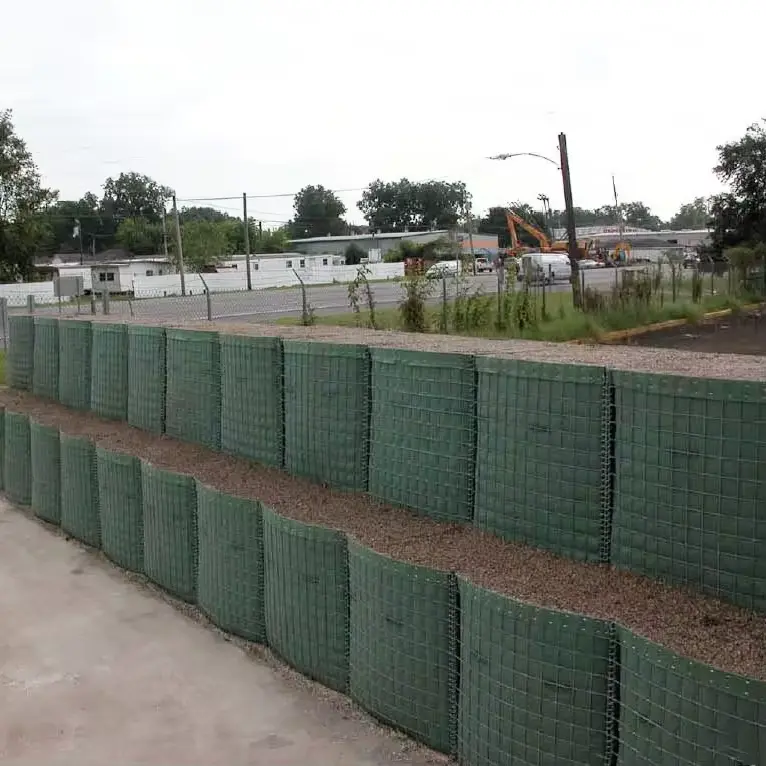
Regularly inspect the HESCO barrier installation for any signs of damage, including tears in the geotextile fabric or compromised structural integrity.
Address any issues promptly by repairing or replacing damaged sections, ensuring the barriers remain effective.
Monitor the installation periodically, especially during extreme weather events or other situations that may impact the barrier's performance.
Note: It is important to follow manufacturer guidelines and any specific instructions provided with the HESCO barriers to ensure proper installation and performance. Consulting with professionals experienced in HESCO barrier installations can offer additional insights and guidance tailored to your specific project.
By following these steps and considering site-specific factors, you can install HESCO barriers and defensive barrier effectively, providing the desired protection and functionality for your project.